Bamboo Sheets Thread Count: Super Soft Luxury & Comfort
Understanding Premium Bamboo Bedding: The Role of Thread Count
In the rapidly evolving luxury textile market, discerning B2B clients and consumers increasingly prioritize sustainable, high-performance materials. Bamboo bedding, renowned for its unparalleled softness and eco-friendly attributes, has emerged as a leading choice. A critical factor in assessing the quality and tactile experience of these textiles is the bamboo sheets thread count. This metric, often misunderstood, significantly influences the fabric's durability, drape, and overall luxurious feel. For B2B procurement, a deep understanding of thread count, alongside the nuanced manufacturing processes and material science, is paramount to selecting products that meet stringent quality and performance criteria.
Beyond mere numbers, thread count in bamboo sheets speaks to the density of the weave, the fineness of the yarn, and ultimately, the longevity and comfort delivered. As a leading manufacturer and supplier, we delve into the technical aspects, industry trends, and practical applications that define excellence in bamboo textile production, offering insights crucial for businesses seeking to elevate their product offerings with superior bamboo bedding solutions.
Current Industry Trends in Sustainable Bedding
The global bedding market is experiencing a significant shift towards sustainability and luxury. Consumers, particularly in the premium segment, are increasingly demanding products that are not only comfortable but also environmentally responsible and ethically produced. This trend has propelled bamboo-derived fabrics, such as bamboo viscose and lyocell, to the forefront. Key trends include:
- Eco-Conscious Sourcing: A strong emphasis on sustainably harvested bamboo, minimizing chemical use, and closed-loop manufacturing processes for fibers like Lyocell.
- Premium Softness: The demand for super soft bamboo sheets continues to grow, driving innovation in yarn spinning and weaving techniques to achieve an exceptionally smooth, silken feel.
- Health & Wellness: Natural, hypoallergenic, and antibacterial properties of bamboo are highly valued, especially in hospitality and healthcare sectors. The desire for a natural bamboo sheet set aligns perfectly with wellness-oriented lifestyles.
- Luxury Appeal: Brands are leveraging the inherent elegance and superior drape of bamboo fabrics to create bamboo sheets luxury collections, often featuring sateen weaves and sophisticated color palettes.
- Traceability and Certification: Increased scrutiny on supply chain transparency, with certifications like OEKO-TEX Standard 100, GOTS (for organic cotton blends, though bamboo is usually viscose/lyocell), and FSC for bamboo forests becoming critical differentiators.
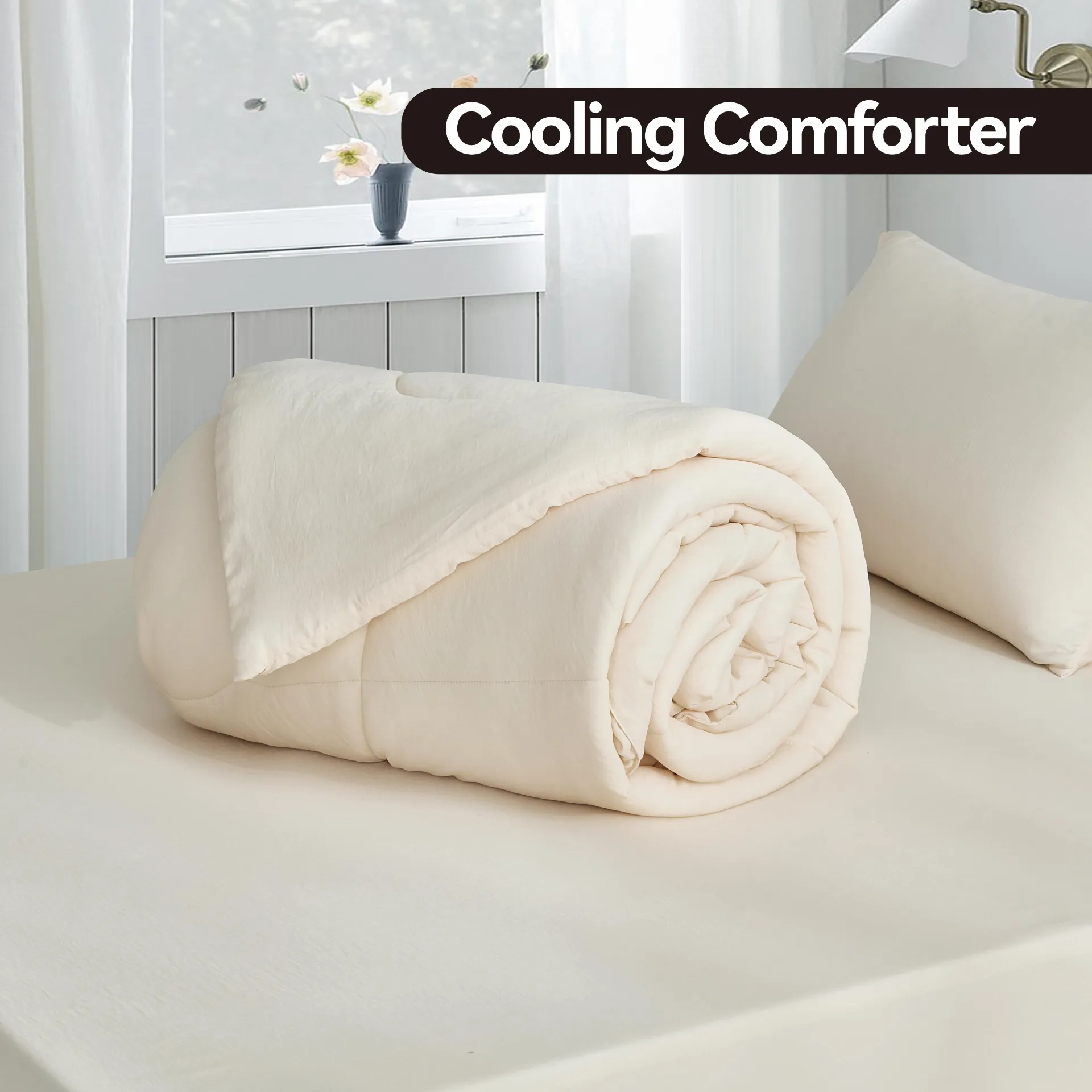
These trends highlight a market that values both ethical production and uncompromised quality, positioning premium bamboo textiles as a strategic investment for businesses looking to meet contemporary consumer expectations.
Manufacturing Process of Premium Bamboo Sheets
The journey from raw bamboo pulp to exquisite bamboo sheets thread count involves a sophisticated series of textile engineering processes. Unlike the manufacturing of rigid components, textile production focuses on fiber extraction, yarn creation, weaving, and finishing to achieve specific tactile and performance characteristics.
Process Flow Overview:
Sustainably sourced bamboo stalks are crushed and soaked to extract cellulose pulp.
Cellulose is processed using either a chemical-intensive (viscose) or eco-friendlier closed-loop (Lyocell) method to create regenerated cellulose fibers.
Fibers are spun into fine, strong yarns. Yarn count (e.g., 40s, 60s) directly impacts the ultimate fabric fineness.
Yarns are woven into fabric using techniques like sateen (for silky feel) or twill. This stage directly determines the fabric's density and appearance, influencing the perceived thread count.
Fabrics are dyed, mercerized (for strength and luster), sanforized (for shrink resistance), and softened. OEKO-TEX certified dyes are crucial.
Finished fabric is cut, sewn into sheets, and undergoes rigorous quality checks (dimensional stability, colorfastness, seam integrity) against ISO 9001 standards.
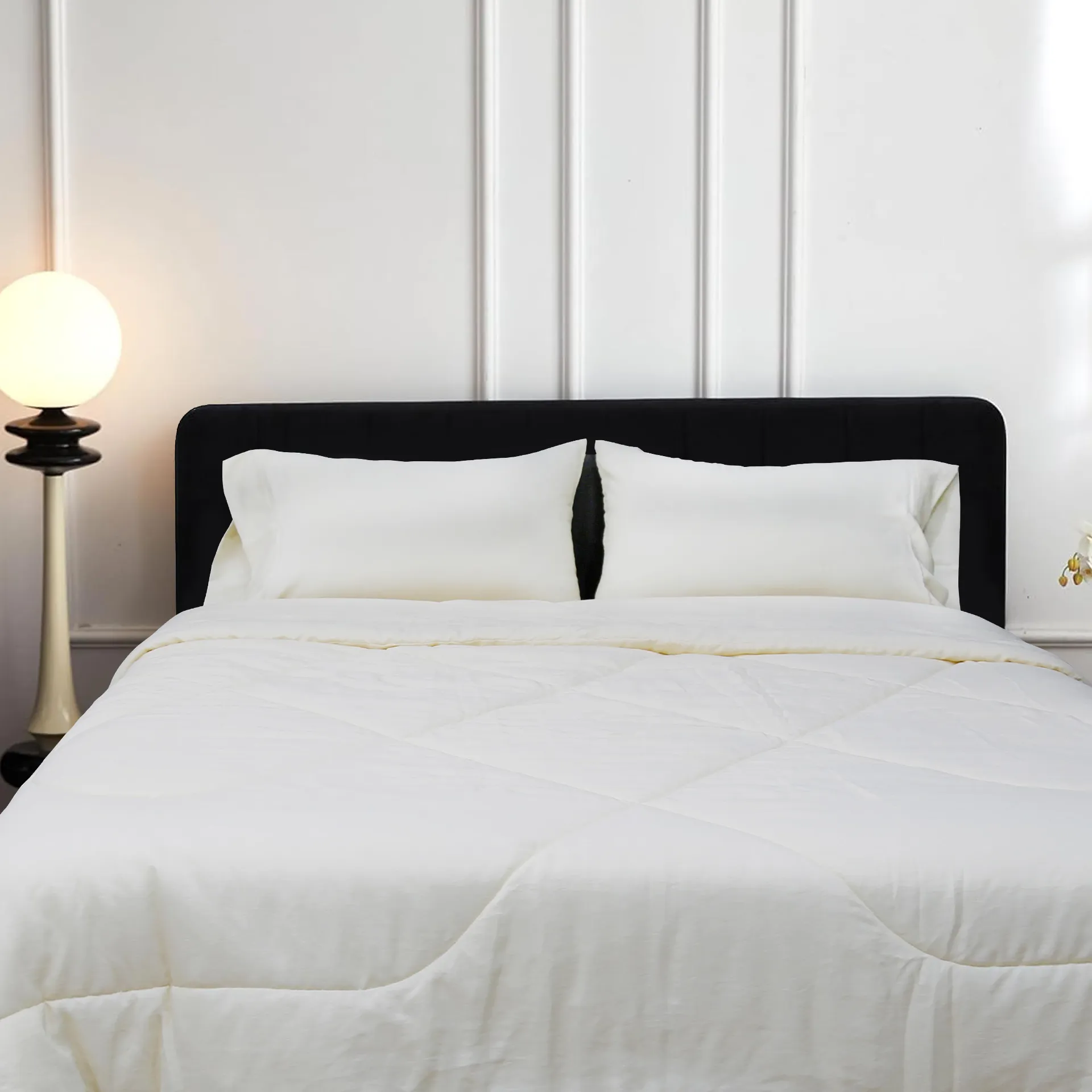
Testing Standards & Service Life:
All materials and finished products are subject to stringent testing. Key certifications include OEKO-TEX Standard 100, ensuring textiles are free from harmful substances, and ISO 9001 for quality management systems in manufacturing. Fabric properties such as tensile strength (ASTM D5034), tear resistance (ASTM D1424), pilling resistance (ASTM D3512), and dimensional stability after washing are routinely tested. With proper care, premium bamboo sheets typically offer a service life of 3-5 years, exceeding that of many conventional cotton blends due to the inherent strength and resilience of bamboo fibers.
Target Industries & Application Advantages:
- Luxury Hospitality: Hotels and resorts seeking to enhance guest comfort and maintain high standards benefit from bamboo's silken feel and thermoregulating properties, reducing laundry cycles due to natural antimicrobial attributes.
- Premium Retailers: Brands offering high-end home textiles leverage bamboo's sustainable profile and luxurious qualities to attract eco-conscious and discerning consumers.
- Healthcare & Wellness Facilities: Hypoallergenic and breathable properties are advantageous in environments where patient comfort and hygiene are paramount.
- Interior Design & Yachting: Custom solutions for high-end residential projects and marine applications, where durability, comfort, and a refined aesthetic are critical.
The inherent advantages—including exceptional softness, superior moisture-wicking (absorbing up to 3 times its weight), natural temperature regulation, and inherent hypoallergenic properties—make bamboo sheets a compelling choice across these sectors.
Technical Specifications & the Significance of bamboo sheets thread count
Understanding the technical parameters of bamboo fabric is essential for B2B decision-makers. While thread count is a widely recognized metric, its interpretation for bamboo sheets differs slightly from cotton. Thread count refers to the number of horizontal and vertical threads per square inch of fabric. However, bamboo fibers are naturally finer than cotton, allowing for a higher thread density without compromising breathability or becoming overly stiff.
For bamboo, an optimal bamboo sheets thread count typically ranges between 250 and 400. Higher numbers are achievable, but beyond 400, the benefit often diminishes, and fabric can become too dense, impacting its characteristic drape and breathability. The type of weave (sateen, twill, percale) also profoundly influences the perceived softness and durability. Sateen weaves, for example, often result in a silkier feel and elegant sheen, characteristic of bamboo sheets luxury.
Key Product Specifications: Ultimate Comfort 200gsm Duvet Tencel-Polyester Blend
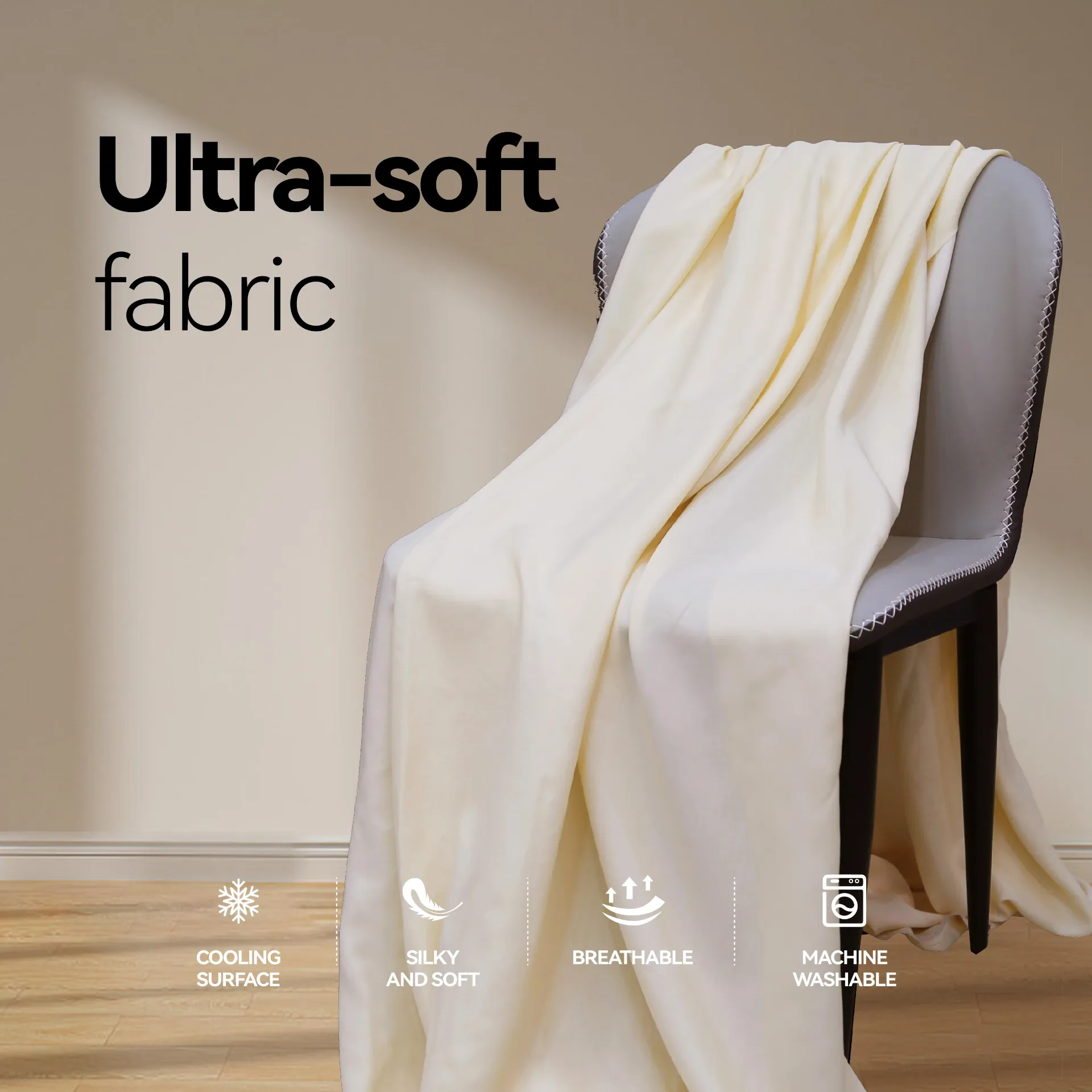
Our Ultimate Comfort blend leverages the best of Tencel's (Lyocell's) superior moisture management and silk-like feel with the durability and cost-effectiveness of polyester, designed specifically for commercial applications requiring frequent washing and sustained performance. The 200 GSM ensures a medium-weight, breathable fabric that retains its shape and luxurious handfeel over time.
Technical Advantages of Bamboo Textiles
The technical prowess of bamboo fabric extends far beyond its soft touch. These advantages are particularly relevant for B2B procurement, where performance, longevity, and user satisfaction are paramount.
- Superior Thermoregulation: Bamboo fibers possess micro-gaps and cross-sections that enhance breathability and moisture wicking. This allows the fabric to adapt to body temperature, keeping sleepers cooler in summer and warmer in winter.
- Exceptional Moisture Management: Bamboo can absorb and evaporate moisture significantly faster than cotton, preventing clamminess and ensuring a dry sleep environment. This is crucial for maintaining the hygiene and comfort of super soft bamboo sheets in high-use scenarios.
- Hypoallergenic and Antibacterial Properties: Naturally resistant to dust mites, mold, and mildew, bamboo is an excellent choice for allergy sufferers. The bio-agent "bamboo kun" also imparts natural antibacterial properties, contributing to a cleaner, fresher environment.
- Durability and Longevity: Despite its delicate feel, bamboo fabric, especially when expertly woven with a considered bamboo sheets thread count, exhibits remarkable tensile strength. This leads to a longer service life, even under rigorous washing cycles common in commercial settings.
- Environmental Sustainability: Bamboo is a rapidly renewable resource, requiring minimal water and no pesticides to grow. The Lyocell process (used for Tencel) is particularly eco-friendly, employing a closed-loop system that recycles solvents, reducing environmental impact significantly for a truly natural bamboo sheet set.
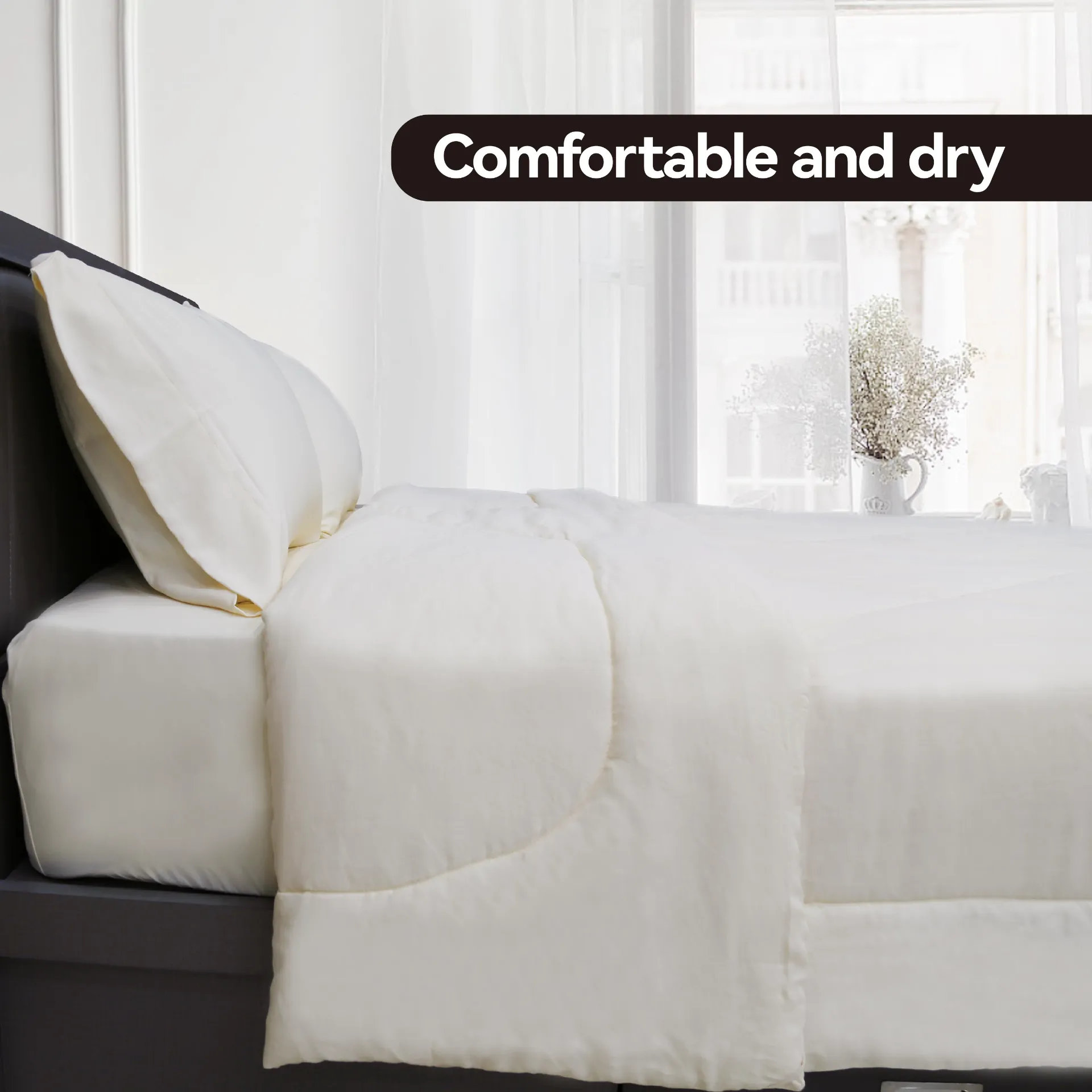
These technical advantages translate into tangible benefits for businesses, including enhanced customer satisfaction, reduced replacement costs, and a strong alignment with corporate sustainability goals.
Vendor Comparison: Evaluating Bamboo Sheet Suppliers
When selecting a supplier for premium bamboo sheets, a meticulous evaluation is crucial. Factors beyond price, such as manufacturing consistency, ethical sourcing, certification adherence, and customization capabilities, play a significant role. Below is a comparative overview, considering a prominent brand like linenly bamboo sheets as a benchmark, against the capabilities of a specialized B2B manufacturer.
Comparative Analysis of Bamboo Sheet Vendors
For businesses requiring specific material blends, performance metrics, and consistent quality across large volumes, partnering with a specialized B2B manufacturer like Longshow Textile offers significant advantages in terms of customization, cost-efficiency, and technical expertise.
Customized Solutions and Application Case Studies
At Longshow Textile, we understand that B2B clients often have unique requirements that extend beyond standard product offerings. Our strength lies in providing bespoke bamboo sheets thread count and fabric solutions, tailored to precise client specifications.
Customization Capabilities:
- Material Blends: Development of specific Tencel-Polyester ratios or other blends to achieve desired performance (e.g., enhanced durability for commercial laundry, specific drape for luxury aesthetics).
- Fabric Weight (GSM) and Weave: Customizing GSM for specific climates or comfort preferences, and offering various weaves (sateen, twill, plain) to influence handfeel and appearance.
- Color Matching: Precision color matching to corporate branding or interior design palettes using eco-friendly, OEKO-TEX certified dyes.
- Size and Construction: Manufacturing sheets in non-standard dimensions for unique bed sizes (e.g., yacht berths, custom hotel suites) and incorporating features like deep pockets or elastic bands for superior fit.
- Branding and Packaging: Private labeling, custom embroidery, and tailored packaging solutions to reinforce client brand identity.
Application Case Studies:
Challenge: A high-end boutique hotel chain sought bedding that offered superior guest comfort, exceptional durability for commercial laundering, and aligned with their sustainable luxury brand image.
Solution: We developed a custom Tencel-Polyester blend with a specific 350TC sateen weave, optimized for both softness and resilience. The fabric was dyed to a custom "signature grey" and branded with embroidered hotel logos. Rigorous testing ensured compliance with hospitality industry standards for pilling, shrinkage, and colorfastness.
Result: The hotel reported a significant increase in guest satisfaction scores related to bedding comfort and feel. The sheets demonstrated extended service life, reducing replacement costs by an estimated 20% compared to previous cotton options.
Challenge: An emerging brand focused on sustainable home textiles needed a natural bamboo sheet set product line that emphasized environmental responsibility, exceptional softness, and clear ethical sourcing.
Solution: We partnered with the brand to produce 100% bamboo Lyocell sheets, ensuring OEKO-TEX Standard 100 certification and full traceability of the Lyocell fiber. The sheets featured a 300TC sateen weave for optimal drape and feel, and were offered in a range of earth-toned, low-impact dyes. We also provided assistance with branded recycled packaging.
Result: The product line successfully launched, quickly becoming a top seller and reinforcing the brand's commitment to sustainability. Customer reviews frequently highlighted the "incredible softness" and "eco-friendly" attributes, leading to strong market differentiation.
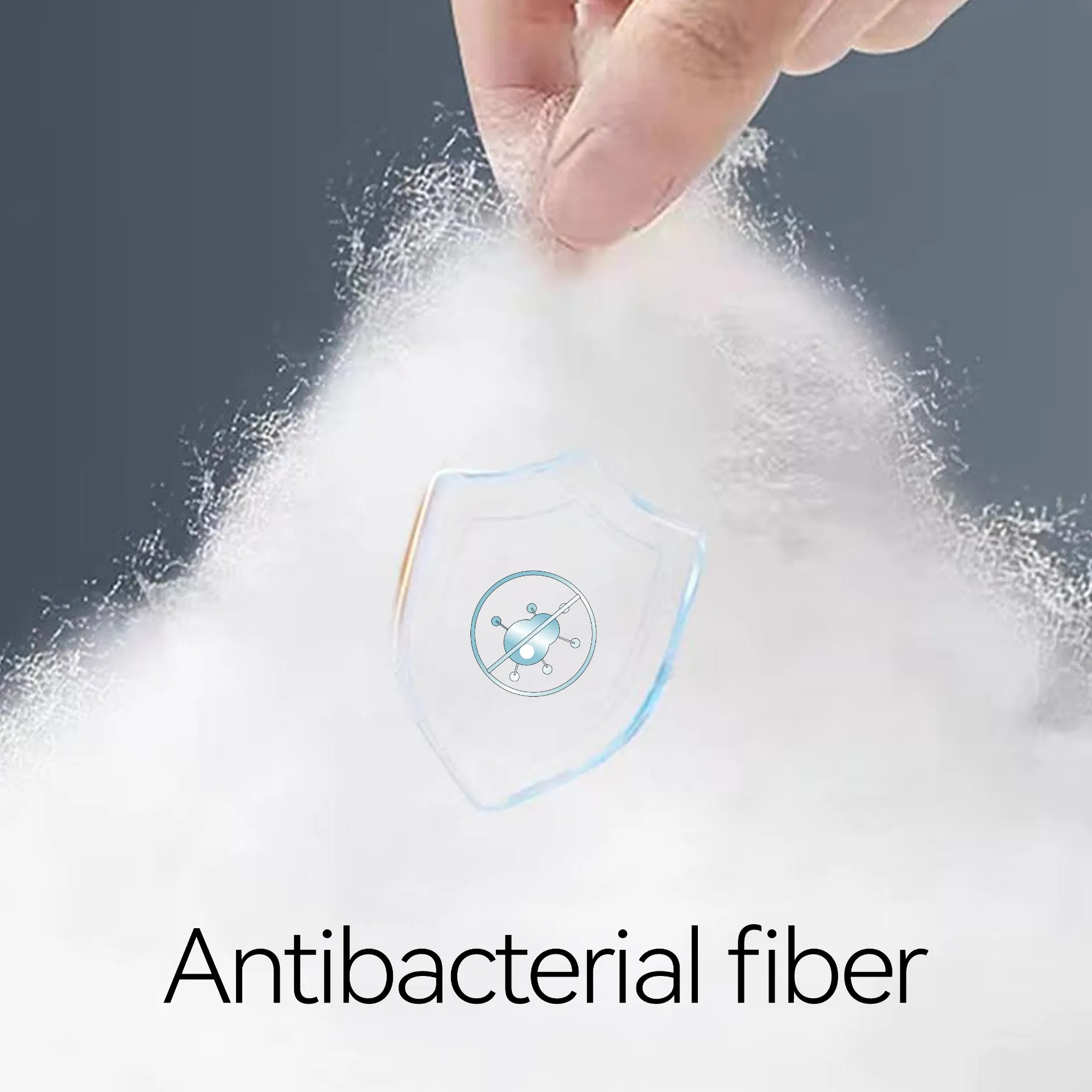
These examples demonstrate our capacity to not only deliver high-quality bamboo textiles but also to act as a strategic partner in developing products that perfectly align with our clients' business objectives and market demands.
Frequently Asked Questions (FAQ)
A: For bamboo, an optimal thread count typically ranges from 250 to 400. Unlike cotton, where higher thread counts often indicate superior quality, bamboo fibers are naturally much finer. A 300-400 thread count in bamboo provides an incredibly soft, smooth, and durable fabric without becoming overly dense and losing its characteristic breathability and drape.
A: Both are regenerated cellulose fibers from bamboo pulp. Lyocell (e.g., Tencel) uses a closed-loop solvent spinning process, which is more eco-friendly, recycling nearly 99% of chemicals. Viscose uses a more chemical-intensive process. Lyocell often results in a slightly stronger, smoother fiber with superior moisture management, making it preferred for premium textiles.
A: Yes, all our bamboo fabrics and finished products are OEKO-TEX Standard 100 certified, ensuring they are tested for harmful substances and are safe for human ecological requirements. Our manufacturing facilities also adhere to ISO 9001 quality management standards.
A: Lead times vary based on order volume, customization requirements, and current production schedules. Generally, for standard designs, expect 6-8 weeks. For highly customized orders or new blend developments, lead times may extend to 10-14 weeks. We provide detailed lead time estimates upon quotation.
A: We stand by the quality of our products with a comprehensive warranty against manufacturing defects. Specific terms vary by product and contract. Our dedicated B2B customer support team is available for technical assistance, reordering, and addressing any post-delivery concerns. We are committed to long-term client relationships and ensuring satisfaction.
Conclusion: The Strategic Advantage of Premium Bamboo Textiles
The demand for high-quality, sustainable bedding solutions is undeniable, driven by a global shift towards luxury, comfort, and environmental responsibility. Understanding the nuances of materials, manufacturing processes, and metrics like bamboo sheets thread count is crucial for B2B entities looking to capitalize on this trend. By partnering with experienced manufacturers like Longshow Textile, businesses can access customized, high-performance bamboo textile solutions that meet rigorous industry standards, enhance brand reputation, and deliver unparalleled user satisfaction. Our commitment to innovation, quality, and sustainable practices positions us as an ideal partner for your next textile project.
References
- Textile Exchange. (2023). Material Change Index Report: Key Takeaways for Sustainable Fibers.
- OEKO-TEX®. (2024). Standard 100 by OEKO-TEX®: Confidence in Textiles. Retrieved from OEKO-TEX.com
- Lenzing AG. (2024). TENCEL™ Lyocell Fibers: Sustainable Textile Solutions. Retrieved from Tencel.com
- ASTM International. (2023). Standards for Textile Materials. Retrieved from astm.org
- ISO. (2024). ISO 9001 Quality Management. Retrieved from iso.org
-
Garment Washed Sheets Color Retention Prevents Fading After WashesNewsNov.14, 2025
-
Charcoal Bamboo Sheets Moisture-Wicking Property Enhances Sleep ComfortNewsNov.12, 2025
-
High Quality Satin Sheets Soft Touch Improves Hotel Guest ExperienceNewsNov.12, 2025
-
Poly Cotton Sheets Breathable Weave Reduces Skin Irritation For PatientsNewsNov.12, 2025
-
Microfiber Sheet Stain Resistant Feature Eases Hotel HousekeepingNewsNov.12, 2025
-
Polyester Cotton Bedding Durable Fabric Withstands Frequent Hotel WashesNewsNov.12, 2025
-
Microfiber Pillow Filling Even Distribution Prevents LumpingNewsNov.03, 2025






